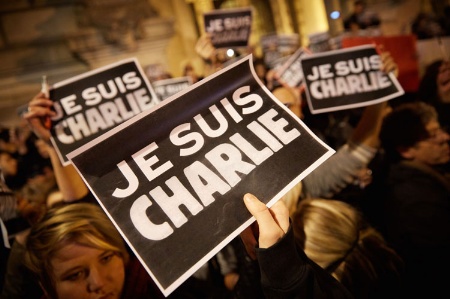
Charlie Hebdo, Mia Khalifa and the sacredness of vulgarity
There are two stories in the media this week that touch on the nature of a free society. The first is headline news in the major newspapers and television networks, while the second is largely relegated to the Buzzfeed-esque websites. I’m referring to the terrorist attack on Charlie Hebdo in Paris, where 12 people were killed by alleged Islamic terrorists, and that Mia Khalifa has become the most popular porn star on the internet’s more saucier websites.
If people make a connection between the two stories it will probably be Islam.
Charlie Hebdo is well known for courting controversy by offending the religious, especially Muslims. The attack is presumably motivated by their publication of cartoons featuring Mohammed and general mockery. Ms Khalifa, as someone who works in pornography, no doubt offends a wide array of people from anti-pornography feminists to the intuitively prudish. However, she has attracted a great deal of abuse online, including death threats, because she is a Lebanese-American and many people in the Levant take exception to her career on religious grounds.
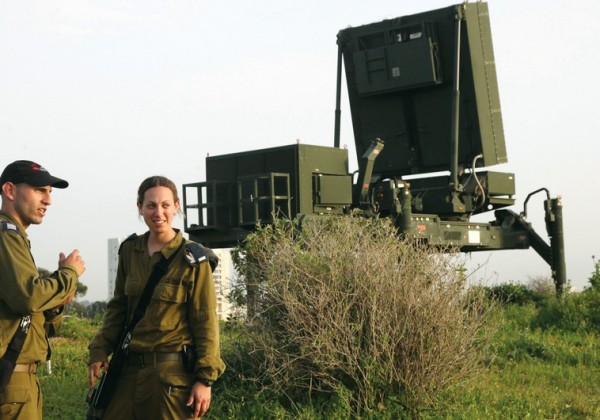
The challenge of Israeli diplomacy
Israeli diplomacy faces a challenge: on the one hand, it has to project an image of Israel as a powerful country; on the other, it has to project an image of Israel as a vulnerable country. Striking the right balance between the two is perhaps the most difficult challenge facing Israeli diplomacy.
Israel has to convey an image of power to deter and an image of vulnerability to convince. Israel is both powerful and vulnerable; conveying such an image to an international audience, often impressed by images devoid of context, is a particularly daunting task.
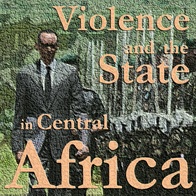
How civil wars end
There is a tendency, even among scholars, to view civil wars as involving two actors—the “government” and “rebels.” This presumption likely arises because historical civil wars that have received the most attention—such as the American and Chinese civil wars—were generally fought between two recognized, organized combatants. Yet, many civil wars (both historical and modern) involve more than two actors.
Take the current civil war in Syria. The Syrian government battles a series of rebel groups that generate a large number of acronyms—ISIS, SLA, SIF, and so on—and that frequently fight amongst themselves. These groups often seek to form coalitions to coordinate their opposition, but the coalitions are unstable and have difficulty controlling their constituent parts. The Syrian conflict also has a large level of external involvement, with the government receiving direct military support from Iran and Hezbollah plus a large number of additional external states and non-state actors seeking to turn the course of the war.
The Syrian opposition’s fragmentation is extreme, but the multiparty nature of the conflict is by no means unique. In fact, many of the wars that have received the most international attention in recent decades—such as in Afghanistan, Columbia, the Democratic Republic of the Congo, Iraq, the Palestinian conflict in Israel, the Darfuri war in Sudan, and Somalia—have involved several rebel groups and significant external involvement.

Are we fighting a just war against the Islamic State?
This question is a little provocative so a clarification is in order. There is a distinction between whether a war is just (jus ad bellum) and whether it is being conducted in a just manner (jus in bello). In the case of IS it is incontrovertible that there is just cause for war. I have argued elsewhere that what is happening in IS occupied territory is attempted genocide. This legitimises military intervention, especially since the Iraqi government has requested help. What I wish to examine here is whether this war is being conducted justly.
Just war theory provides us with several principles that limit what is morally permissible in war. There are two principles that give us cause for concern when assessing the intervention against IS: proportionality and non-combatant immunity. The first of these is the idea that the means of war must be proportional to the ends. Soldiers should aim for victory, but this does not mean that victory can be pursued by any means necessary. There must be, to use Michael Walzer’s term, an ‘economy of force’ (Walzer, Just and Unjust Wars, 129-33). A general should not waste the lives of his soldiers in a bloody offensive when there are more economical means to victory. He should not resort to tactics that will produce longstanding bitterness and prolong the war (such as taking no prisoners).
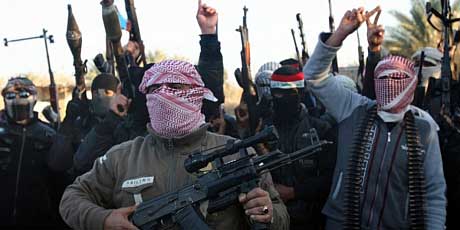
Is bombing ISIS atrocity prevention or a token gesture ?
Last week, the UK government voted, by a huge majority of 481 MPs, to engage in military action in Iraq. Now, once again, we are effectively at war in the Middle East.
For anyone committed to humanitarian inclinations, military force – so easily legitimated through hyperbolic statements of threat, and dramatic images of missiles precisely destroying targets through an aircraft’s gun-sights – should be treated with deep scepticism. Yet the tendency to reflexively reject and virulently condemn military action out of hand is no less lacking in critical reflection than the mindless swallowing of hawkish hyperbole.
The international community has rightly been condemned for standing by and allowing genocide to occur in Rwanda in 1994, and in Darfur in 2003. Is this a similar case? The unfolding and deepening disaster in Iraq seems very much of our own making; so will inaction make us again culpable in unspeakable human suffering? Or is the impulse to fight mere atavistic “war fever”?[1] To answer these questions we need to interrogate two more: first, is the threat of ISIS as great as is claimed? And second, will military action do any good?

Is the Islamic State committing genocide?
Recently I had a chance to visit the Christian community of Tur Abdin in Eastern Turkey, a long standing community. The monasteries where I stayed dated to the 5th century AD. The people are generous and welcoming, but there is certainly a feeling of isolation and anger in the community as well. You can see Syria stretching out in the distance from the Mor Hananyo Monastery. The people have family and friends in Syria and Iraq. These are the Christians who have been subjected to the brutality of the Islamic State (IS) along with the Yazidi, Shabak and Shia people of the region. Yet, this is nothing new to the people of Tur Abdin.
The monasteries, with their austere beauty and clockwork way of life, give the impression of tranquility. The reality is that this region of the world has been subjected to repeated instances of inter-ethnic and inter-religious conflict. All but one of the people I spoke about the region and its history had lost family in the pogroms of the late 19th century, the terrible bloodletting that accompanied the collapse of the Ottoman Empire, down to the recent conflict between Ankara and the Kurds. Violence is woven into the historical fabric of life in Tur Abdin.
The people are horrified and scared of what is happened a few kilometers from their homes, but they do not expect anyone to help. They’ve seen this before. The international community condemns, prevaricates and retreats. Admittedly, things are starting to happen. Airstrikes against IS have escalated and now include strikes in Syrian territory. Greater assistance is being given to the Kurdish Peshmerga, moderate Syrian forces and the Iraqis. However, this is insufficient. The world needs to decisively intervene in this conflict because the Islamic State is attempting to commit genocide against the minorities in their territory and we all have an obligation to stop them.

The Social Contract 2.0: Big data and the need to guarantee privacy and civil liberties
Much has been written regarding the rate of technological innovation and how these advancements might provide solutions to the emerging challenges facing humanity in the 21st century and beyond.A number of new technologies raise questions of our relationships to these technologies, and will be crucial to consider in terms of their sociological and cultural impact. Ultimately we must consider how specific technologies might either preserve or threaten human dignity, and thus what sorts of empowerment or regulation will be most appropriate. The integrity ofthe social fabric at various strata relies upon—often unspoken—understandings held in common by individual members of those social strata.
The idea of a social contract has a long history, dating back to various ancient cultures, ranging from the ancient Egyptians, Hammurabi, Greek, Roman, Chinese, Indian and the traditions of the three monolithic religions, Judaism, Christianity and Islam. However, a more recent exploration started with Grotius, Hobbes, Locke and, of course, Rousseau, who explored the limits of individual freedom, and the power of the sovereign. From Locke`s conception of the state as a “neutral judge”, to Rousseau, Rawls and others, all perspectives of the social contract ultimately seek to explore why rational individuals would consent to give up some of their freedoms as a trade-off for living in a political order.
A common thread in the social contract theory is the assumption that the state and political order exist for the general interest of the people, where life, liberty and property can be protected. What does this mean in an age of rapidly emerging technologies, Big Data, intense mobility and deepening connectivity and interdependence that transcend normal sovereign borders? Now seems to be an appropriate time to reassess some of our long-held credos about our liberties, the functions of the sovereign and the limits of control.
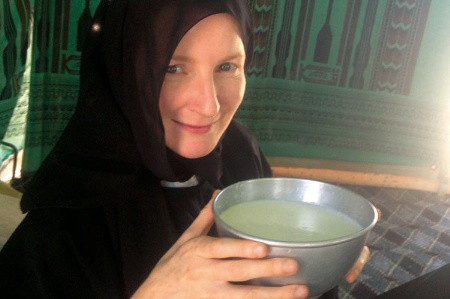
Oxford to Yemen: from literary scholar to tribal adviser
In today’s academic environment, two watchwords that crop up on most project target lists are interdisciplinarity and impact. Find out how both are being brought to bear on new research in the outlying tribal regions of Yemen. As a Senior Research Fellow and Arabic specialist I have been working in Egypt and Yemen in the years following the outbreak of the Arab Spring in 2010. My research started in Egypt with a survey of media, culture and public opinion in the aftermath of the revolution, together with political scientists from Oxford’s DPIR and Cairo University. At the same time, my study of the use of poetry in Yemen’s jihadist journals brought me to a new political interest in how Yemen’s transition to a federal system is playing out in Yemen’s eastern regions. Together with local tribesmen, I sought to gather popular opinion on the range of social, economic and political challenges facing them, which in turn precipitated the formation of an elected cross-tribal council. I’m continuing to talk to governments and the UN about problems faced by the tribes in eastern Yemen and the associated political instability.









